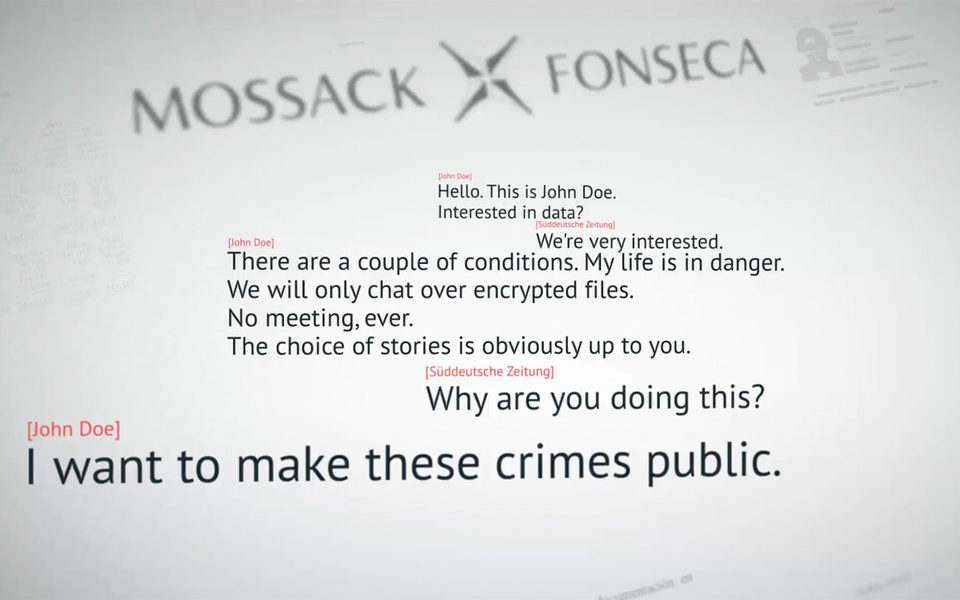
Collaboration is the new norm in investigative data journalism.
The days of leakers sleuthing around in dark offices with flashlights and briefcases are long gone. Data leaks have become much more viable due to the advancement of technology in the digital age. They have paved the way for organizations, like the International Consortium of Investigative Journalists (ICIJ) and others, to collaborate in ways that would have been previously unimaginable.
“We’ve absolutely reached the age of the massive leak,” said Marco Chown Oved, an investigative reporter with the Toronto Star, one of the ICIJ’s two Canadian media partners. “Because of the digitization of information, never has it been easier to leak information.”
Oved and his colleagues at the Star recently worked together with the ICIJ and its partners across 70 countries to break the Paradise Papers, the latest of several investigations into offshore tax evasion of the rich and powerful. The data was originally acquired by the German newspaper Süddeutsche Zeitung, who reached out to the ICIJ because of the project’s scope.
The Paradise Papers unearthed how global corporations, like Nike, shelter their wealth offshore, and how celebrities, like F1’s Lewis Hamilton, avoid paying taxes on things like luxury jets. Although it is not technically illegal, the bypassing of taxes by companies and individuals forces everyday citizens to fill the tax voids in their respective countries, calling the ethics of such acts into question.
The collaborative model has been regularly utilized by the ICIJ in recent years, and was vital in breaking the Lux, Swiss, Offshore, and Bahamas leaks, as well as the Panama and Paradise Papers.
Though all these leaks have been significant, the Panama Papers investigation garnered the most international attention when they were released in April 2016. That investigation required over 400 journalists from 80 countries to sort through 2.6 terabytes of data, making it the biggest data leak in history. The Panama Papers data was also originally acquired by Süddeutsche Zeitung.
The Panama Papers reaffirmed the power of journalism, leading to the ousting of politicians in Iceland and Pakistan, and forcing many nations to re-evaluate their financial laws. It showed how effective journalism can be if competing news organizations are willing to join forces, and are able to efficiently utilize modern technology to improve their reporting capabilities.
“I sincerely hope it’s the new model,” said Zach Dubinsky of the CBC, the ICIJ’s other Canadian media partner. Dubinsky, who worked on both the Panama and Paradise Papers, was impressed by the ease of cooperation between him and his global colleagues. “It’s amazing how quickly potential competitors can become great collaborators.”
The fact that journalists often share universal goals makes things easier, Dubinsky said, citing the pursuit of truth and matters of public interest as two common goals.
Effective journalism that utilizes the collaborative model popularized by the ICIJ is on the rise.
During the 2016 U.S. election, several well-known news organizations gathered at the City University of New York as part of a project called Electionland. It was aimed at monitoring and tracking problems that arose at polling stations across the country. Over 400 news stories were produced as a result, and “in many cases, the real-time nature of Election Day reporting meant voting problems were able to be solved immediately,” a case study produced on the project earlier this year said.
In Canada, an eight-part investigation into Saskatchewan’s oil industry called The Price of Oil was co-released last month by the National Observer, Toronto Star, Global News, four Canadian journalism schools, the Michener Foundation, and the Corporate Mapping Project. The reporting successfully unearthed transgressions by some of Canada’s biggest oil and gas companies.
Although these examples don’t concern data leaks, the principles of teamwork and trust necessitated by the collaborative model are the same.
Something else these examples share with the ICIJ’s investigations is a heavy reliance on efficiency. Using technology like optimal character recognition (OCR), Pretty Good Privacy (PGP), Blacklight and the Global I-Hub, journalists can sort through and decipher giant data leaks more easily.
“What these technologies give everyone the ability to do, is they effectively democratize [the work],” said David Pegg, a journalist with The Guardian, another one of the ICIJ’s partners. “Security is built into it from the ground up. It creates a shared work space – it’s not particularly cumbersome and it’s not particularly complicated … It couldn’t have really happened without them,” he said, referencing his work on the Panama Papers.
While these kinds of technologies may represent a new frontier for journalists, they are becoming increasingly commonplace as the profession continues to adapt out of necessity.
“The thing to remember is when things like the telegraph came in the 1840s, it was as revolutionary to people at the time as the internet is to the people of our time,” Gene Allen, news historian and journalism professor at Ryerson University, said. “Real time collaboration is much more possible now.”
As we near the end of 2017, the telegraph – like the leaker who was once forced to sleuth with a flashlight – is a relic of the past. Data leaks and the ability to report on them have never been more accessible for the ICIJ and other worldwide media organizations. This kind of work is vital in terms of unearthing what Oved calls “shadow economies,” and other systems that continue to perpetuate global wealth inequality.
About the author
Managing Editor, Business and Audience Engagement